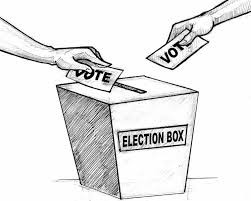The Electoral Act 2022 was assented to by President Muhammadu Buhari on the 25th February 2022. The Act repealed the Electoral Act of 2010 that governs all Federal, State, Area/Local government elections in Nigeria which in no doubt a great step towards the 2023 general election to ensure smooth transitioning.

Here are the major highlights of this Act;
- This new act allows for financial autonomy unlike the 2010 Act where before INEC gets funding, approvals have to come from the Minister of Finance. In this new Act, the commission gets funding directly from the Federal Government.
This new act also establishes the Independent National Electoral Commission Fund to be paid directly by the Federal government to the commission to enable them discharge their functions and money shall be paid to the commission a year before the conduct of the general election.
- This new Act allows the use of electronic devices and technological devices like card reads etc. during accreditation process during elections. This new Act provides for electronic transmission of election results in accordance with the way and manner prescribed by the Commission.
- This new Act introduces the controversial Section 84 (12) that disallows political appointees from participating in any convention or congress held by any political party either as a voting delegate or as an aspirant for the purpose of nominating a party flag bearer at the general election. In plain terms, no political appointee is allowed to vote or be voted in party primaries, hence they are to abdicate such position before the conduct of the party primaries.
- This new Act empowers the presiding officers at any polling unit to cancel the election result in a polling unit where the number of votes counted exceeds the number of accredited voters in that poling unit.
- Unlike the 2010 Electoral Act that prescribed that parties should submit the names of party flag bearers who participated and emerged victorious in the party primary election not later than 60 days before the conduct of the general election, this new Act gives the window of 180 days for the party to submit the names of the emerging candidate to the commission.
- This new Act ladens on the commission to not later than 360 days before the days scheduled for the election to publish a notice in each state constituencies of the Federation inclusive of the Federal Capital Territory detailing the date of the election and the place where nomination papers will be delivered to. This provision takes a distal from the provisions of the 2010 Electoral Act which provides for a 90 days period before the conduct of the election.
- This new Act extends the days for public campaigning for a candidate and his/her political party from the 60 days from the day of the election and should end 24 hours before the election day as obtained under the 2010 Electoral Act to 150 days from the day of day of the election and should end 24 hours before the election day.
- With respect to matters pertaining to the death of a candidate, this new Act provides that where before the commencement of polls a candidate dies, the election shall be postponed and shall commence within 14 days of the candidate’s death.Where a candidate dies after polls, but before announcement of the final result, the election will be suspended for not more than 21 days.Where the election is for a legislative position, the election shall be conducted afresh and the political party whose candidate died may, if it intends to continue to participate in the election, conduct a fresh primary within 14 days of the death of its candidate and submit the name of a new candidate to the Commission to replace the dead candidate.For gubernatorial, presidential and FCT area council elections, the running mate shall continue with the election (as the new candidate) and nominate a new running mate.
- Unlike the provisions of the 2010 Electoral Act where the decisions of the Returning Officers with respect to declaration of scores of candidates, return of candidates, void votes, unmarked and rejected ballot papers etc. can only be subject to the review by the court or an election tribunal however, this new Act empower the commission to also review the decisions made by the returning officers.
- This new Act raised the standard for data keeping and management as it provides for ways of keeping the Register of Voters at the National headquarters and other locations in formats like the mundane manual and hard copy format and also the introduction of the electronic format in its central database location. The provision takes a distal from the 2010 Electoral Act that only allows for the manual format.

CONCLUSION
Considering the provisions of this new Act, it is safe to say it is a laudable introduction to the right direction of electioneering process. This new Act can be described as and home-made and home-grown Act because the provisions of the Act are actuated to solve the mischief and anomalies of the 2010 Electoral Act that led to prolonged litigation. This Act will be put to the litmus test objectiveness in the buildup of the 2023 election like the party primaries and the 2023 general election.